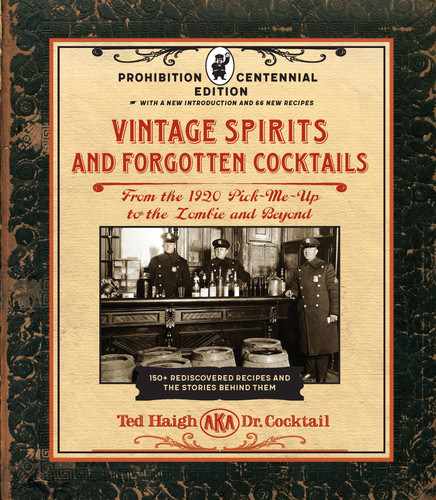
PIONEERS OF THE FORGOTTEN COCKTAIL REVISITED, RECALLED & REVISED
In 1803 (if not before), newspapers offered the first glimpse of the newborn cocktail–and were the first to promote cocktail bartenders and recipes from the 1830s–1850s, before any book publisher had the guts or foresight to offer them to the vox populi. Half a century later, Jerry Thomas did relate the earliest recipes in a book that spawned many editions and many more imitations. Intrepid international tourists took home travelogues, then reported in their own press. Film, the new medium, embraced the theatricality of drinking, be it comedic or dramatic.
Through the waves and troughs of history, those who were new had first awareness of that which was also new. New mediums of communication most quickly told the story of the moment, forward thinkers embraced it, both maturing into a mainstream that more than accepted it, finding it, simply, commonplace—just as human generations always did. Adaptation made the whole process viable.
There are teenagers today for whom a world without the internet is little more than a dry historical abstraction. I saw this clearly in 2008, and now we see what such independence of thought has wrought in the past decade. I though then that the thirsty, powerful appetites of capitalism would surely gobble up the wide-eyed efforts to reinvent classic cocktails in ways that hadn’t really happened since Prohibition, as I write this, during its hundredth anniversary.
As we examine forgotten recipes, electronically or on the brittle pages of dusty tomes, it’s not just the drinks that appeal to us, but the ghosts that conjured them. Venues, barkeeps, events, perspectives, discoveries, romances, rumbles…we know them from their writings, their recorded actions, and maybe what’s left is just a fleeting glimpse, conjured by a little cocktail.
As I wrote, with unexpected and regrettable prescience then, “in as little as seven years, some of the great voices of the current revival will be silenced. Some already are. No one has yet given those voices their place in the historic record.” I thought then that in comparatively few years (measured in many human lifetimes ongoing) that maybe some minds of future might want to know.
And so now, I look back at those forums and web logs that gave the cocktail a new voice and new legs, sometimes to the consternation of massive conglomerates of its industry that suddenly had to listen to voices they did not control or fully understand—and who told them what they really thought.
THE 25 GREAT ORIGINAL ONLINE COCKTAIL PIONEERS

In the beginning, the online experience was glowing green type on a black screen. There were intranets and there was an Internet of sorts, (including Usenet and its groundbreaking bulletin board system, where humans could discuss anything) but there was no World Wide Web. Typing alphanumeric sequences and hitting return accessed these passages, communiqués, and type-bound communities—linked to humans of common interests. Craig Goldwyn founded the earliest online forums for food, beer, wine, spirits, and cocktails in that then-silent world.
“I launched Wine & Dine Online in 1989, six years before anyone ever typed www on purpose. It was for red wine, type ‘r’, for white wine, type w, for spirits, type s. In 1990 I founded the Food & Drink Network on AOL. AOL was the 500-pound gorilla. We had a group of ‘mavens’ who managed the individual interest areas (wine, spirits, beer, cooking, cigars, and restaurants) and they were lively, animated, and fun. I ran FDN until AOL annexed it in 1999, and then AOL began its slow decline and lost the personal touch the mavens provided.”

In mid-1995, the first large-scale cocktail recipe database hit the increasingly user-friendly Web. In 1997, the author of this database, Paul Løberg of Norway, added the first Internet-accessible Web forum on cocktails, The Webtender.
“I think the blogs and forums give a different angle of view on the field of cocktails and bartending. I believe cocktail forums on the net can help share the affection many of us have for cocktails.”

To many at the dawning cocktail resurrection, the single culminating locus for their interest was a website-and-book diptych—the first of its kind. The website then was a message from the future foretelling what the Web would become. Cocktailtime.com, part of Hotwired, Wired Magazine’s online presence, went live in 1995. It all coalesced around one name: Paul Harrington.
“Laura Moorhead and Graham Clarke conceived of the website one evening at the DeLuxe, a cocktail bar in the Haight in San Francisco. She was employed at Wired Magazine. For the first year, no one on the Wired staff was paid to work on the site. It was all produced after hours with bribes of cocktails and food. Within the first 6 months, we had a following of 70,000 who signed up for our weekly newsletter.”
In 1996, 9.5 million Americans had Internet access…6.4% of U.S. households.
“Since we were pretty much the first online source, there really wasn’t an influence from the Internet. I do not follow the blogs closely, but I would say that from what I have seen, they are a very positive influence. The consumer has become more knowledgeable in a very thoughtful way. Cocktails and Cocktailtime.com were never meant for the masses. I think the online cocktail community will continue to be very important so that people outside of New York, San Francisco, London, etc. won’t feel isolated.”
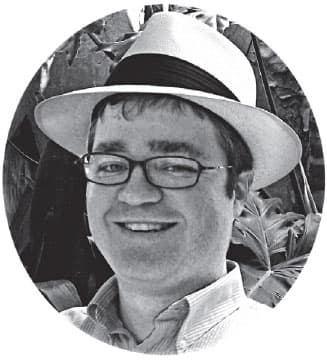
The website The Gumbo Pages started as a modest collection of part-time DJ and New Orleans native Chuck Taggart’s radio show playlists, Louisiana recipes, and suggestions for things to do when visiting New Orleans. Looka!, the blog portion of the site, started in 1999, long before the term “weblog” or “blog” existed.
“One thing I really appreciate is how much respect a lot of cocktail bloggers get from professional bartenders and mixologists. The liquor industry has definitely taken notice too—cocktail bloggers are now being offered samples of spirits for review, and the liquor companies are quickly learning that cocktail bloggers won’t just swill anything sent their way. The dedicated cocktailians who write these blogs demand high quality from the liquor companies, and ultimately I think it’ll help the industry realize that what’s going to serve them better in the long run is not something trendy or colorful, but something truly well-made that tastes fantastic.”

When Microsoft came out with a community/groups/forum system, Robert Hess decided to kick its tires a bit and started the DrinkBoy discussion forum on MSN in 1999. Drinkboy.com was the first publicly indexed cocktail education website.
“Cocktails creatively spark my culinary training…being ‘vintage’ doesn’t necessarily mean ‘good.’ … It really came together for me when I realized that the same dish served in different fine restaurants, should itself be slightly different, because in every instance the chefs are imparting their creativity, style, and years of training.
Posters in the Drinkboy forums are largely cocktail theorists. This level of communication gives professional bartenders and amateur home mixologists a conduit of input and recommendations.

Tiki Central was created in January 2000 by Hanford Lemoore and Jennifer Thompson. It’s a large community that spans almost every facet of Tiki and the classic Tiki bar.
“We all share a common love for Tiki and the escape-the-concrete-jungle mentality that a Tiki bar represents. I was shocked when I couldn’t find all the necessary ingredients in even the biggest liquor stores in my area. At that point it began to dawn on me that these cocktails were the linchpin of the classic Tiki bar and were dying out. As Tiki Central grew, I still am amazed at the amount of research and discovery in that area that continues to this day. And I think that “preserve the past” mentality is a part of every aspect of Tiki Central not just the cocktail connoisseurs.”

Jamie Boudreau represents the general Web trend away from sites, forums, and blogs as exercises of skill by computer geeks and, as interfaces became more user friendly, more accessible by professionals who wanted to translate their (non-computer) vocations into targets of personal enthusiasm–or (for some) disdain.
“I wanted to share knowledge with those who didn’t have access to the large metropolitan bars (NY, San Fran). My hope was that it would inspire bartenders to make better drinks, thereby speeding the infiltration of well-crafted cocktails throughout the world, enabling me to get a well-made Sazerac no matter where I traveled. I also think that you’ll see more advertising in the future, with liquor companies sponsoring recipes, weeks/months of posts, or even an entire blog.”
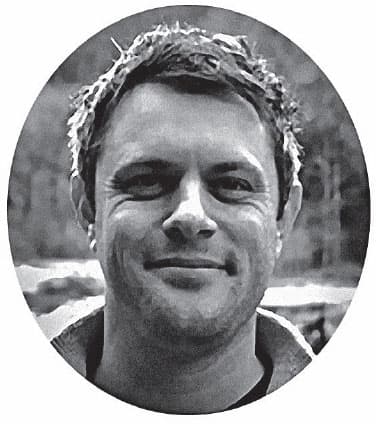
“When I first started exploring vintage cocktails, I was working in a nightclub where the drinks were infamous for quantity over quality. Coming home every night and reading about craft bartending helped me retain my sanity in a time when properly executed cocktails were practically unknown in this country. My blog is constantly evolving to reflect the learning process that I take through my career. I’m learning more every day, and I like being able to share this journey with my readers, some of whom are on a similar path. I often think about how powerful the blogging community has become, to the point of actually influencing tastes and styles among customers and bartenders.”

In October 2004, bartender Jimmy Patrick flipped the ON switch for Mixographer, and thus attained one of the truly great names in cocktail etymology.
“I started my blog to force myself to learn more about bartending and cocktails. Trying to explain something to someone is a sure way to make sure you know it yourself. By forcing myself to write about cocktails, I keep learning more and exploring. Finding a good vintage cocktail is like a treasure hunt.
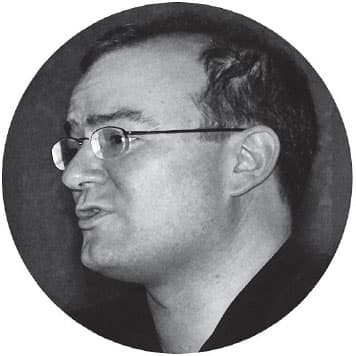
Paul Clarke’s Cocktail Chronicles is widely viewed as the standard bearer for cocktail blogs. Clarke inaugurated Mixology Mondays, an inter-blog cocktail recipe swap/challenge based on a proposed ingredient or theme. This once-a-month event has had a profound effect on individual cocktail blogs drawing them into a fellowship of focused, unified interest. Clarke has inspired the quality of verbiage of aspiring drink scribes across the blogosphere.
“I’m a failure junkie. If I were able to stroll into any local bar and simply order what I want, I’d find little joy in that. But if a drink has a certain obscurity, or contains ingredients that only a dedicated enthusiast could find or make—or that are totally impossible to obtain—then it gives the drink an aura of mystery, which provides extra appeal for me.
“I’m a bit more skeptical about the effect blogs have on the liquor industry; while they’re certainly looking to us to help publicize their products, I think the liquor industry is so massive and the blog readership so small that we’re, at most, an afterthought for the larger brands. At this stage in the game, it doesn’t matter how enthusiastically we all blog about Corpse Revivers, Pimento Dram and the nuances of Martinique rhum; we’re still overwhelmed by the oceanic tide of Chocolate Martinis, Sour Apple Pucker, and the blandness of Bacardi. I don’t see that changing anytime soon.”
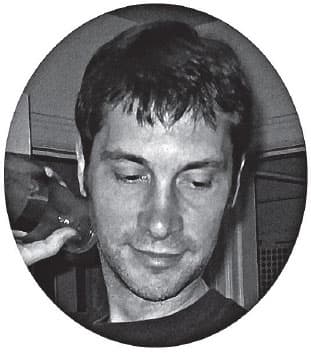
Erik Ellestad, previous host and current participant of the eGullet cocktail forums, has participated since 2005. Most of his fellow eGullet forum attendees are Foodie-esque home-cocktail enthusiasts or bartenders. Erik originally joined the forum looking for guidance on an abortive attempt at an original cocktail. It took two years to approximate even with the advice of eGullet participants, a hard cider version of a French 75.
“I think the next phase of cocktail history in this country will parallel current developments in the craft brewing culture. We’re going to see larger entities noting the success of passionate enterprises and attempting to co-opt or reproduce them for volume establishments. In the end, the larger entities likely won’t entirely succeed. A lot of what makes a cocktail bar successful depends on passion and pure hard headedness.”
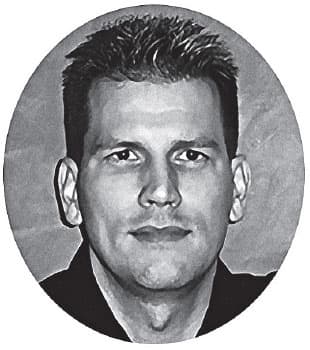
“When I first started bartending, the ‘standard’ bar drink recipes kind of repulsed me and I wondered how ‘cocktails’ became so popular. I soon realized that cocktails hadn’t always been the sugar abominations they are today. I decided that if I wanted things done right, I’d have to make the cocktails myself. The increased interest has also made long-forgotten spirits a curiosity to many. Because many of these products are no longer available, it presents a challenge, for some, to resurrect these spirits. Part of the evolution of drink blogging is to tackle new topics continuously. Whether it is looking for lost recipes, cocktail-making techniques, or discussing the latest modern liqueur, it is the varied nature of the discussion that keeps people interested.”
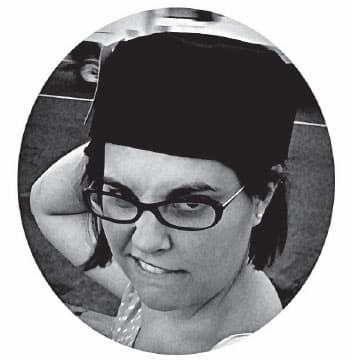
Marleigh Riggins started Sloshed! in late 2005. At the time, she was co-editor for one of the Gothamist sites, LAist, and spent significant time blogging there. Earlier that same year she began experimenting with a book of drink recipes.
“I became enamored of all of the combinations that were available and the surprising history of cocktails; I even enjoyed the effort it took to seek out some of the ingredients. The fascination was undeniably in the history. My parents and grandparents have wonderful stories about drinks they used to order when they went out—Singapore Sling, Suffering Bastard… there’s something undeniably charming about the overstated grandeur of bartending as a discipline—the larger-than-life characters, intricate and grandiose presentations, witty or silly names—coupled with the fact that bars and booze always retain some vestige of seediness. It’s a study in juxtaposition, and liquor and cocktails run in and out of all sections of history, from monasteries and medicinal preparations to moonshiners and speakeasies. Vintage cocktails allow you to have some small access into those strange byways of history.”

“My wife and I are adventurous eaters and drinkers. The fascination of vintage cocktails arose from that. At the time that I started my blog, Gary Regan’s The Joy of Mixology was my bible. I think that’s because bartending is generally a profession with both camaraderie and fierce competition. Everyone wants to know what the next guy’s up to, but at the same time, everyone’s happy to share information. The competitiveness in bartending appears not to be cutthroat and cruel; it seems instead to be a competitiveness of innovation.”

When Rick Stutz took Kaiser Penguin online in March 2006, he felt he didn’t know a lot about cocktails and gambled that a blog would allow him to meet other cocktail freaks that did. He cites Beachbum Berry’s Grog Log as his greatest inspiration and observed that “…no one was doing intense photography or recipe comparisons at the time, so I dove in to fill the gaps.”
“Ever since I sipped from my first Scorpion Bowl, I knew the lure of exotic cocktails had ensnared me. A group of 15 or so of us just had an online chat with brand managers not more than a week ago. From a product point of view, I think we help to shape smaller distributors (like Haus Alpenz) with which products to carry.”
Rick foresees a glorious future when vodka will be renamed Poser Fluid and finally be dethroned by rum in our lifetime.

“I’ve always been drawn to old world glamour: Hollywood of the 1930’s and 40s; Literary Paris of the 1920s; the speakeasy culture. Alcohol plays such a huge role with regard to artists, writers, and ‘thinkers.’ Whether aiding on the path to a ‘tormented artist’ self-destruction, or acting as a gathering point for great minds to chew over relevant topics of the day, bars and the drinks served there are part of our history in twentieth-century culture, and social evolution through the Industrial Age. The national cocktail movement had just recently gotten underway, and I found myself swept up in what I call ‘mixology mania!’ I became increasingly passionate about spirits, cocktails, and the history and culture that goes along with them. I decided that when I left my (publicist) job, I’d start a cocktail blog, and highlight the amazingly creative bartenders working in various spots around the city.
Dale DeGroff is our Robert DeNiro; the Top Dog of Mixology and cocktail culture. He is such a kind and generous man. Tony Abou-Ganim has played a huge part in my passion for mixology. The first mixology session I ever took was with Tony, and by the end of it, I knew I was hooked. Now, every hour of every day is consumed with mixology one way or another.”
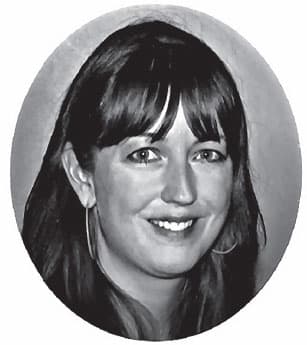
Lauren Clark was looking for an online resource about the bar and cocktail scene in Boston. She couldn’t find one, so she started one.
“The cocktail, as I grew up with it, was a sugary soup formulated to mask the taste of booze. The sophistication and deliciousness of vintage cocktails were a revelation. My blog and the Boston cocktail scene seemed to be evolving in tandem—it has positioned me as an authority on the best bars and bartenders in Boston and people seem to like the writing. Cocktail bloggers are often bartenders, historians, or at least hardcore enthusiasts… so they are influencers. Their drinking preferences ripple out. While not every bar is serving Police Gazette cocktails and making its own bitters, I see more bars venturing off the beaten path of flavored vodka martinis. I don’t think pimento dram (aka St. Elizabeth’s Allspice Liqueur) would be on the market if bloggers didn’t spread the word about it.”

Having launched Imbibe magazine in mid-2006, Karen Foley wanted to create an online companion (Imbibe Unfiltered), a forum where readers could get between-issues news, recipes, and contribute information and feedback. Paired together, they are a potent force for cocktail education.
“Vintage cocktails dovetail perfectly with that mission. We love sharing the stories behind the vast array of vintage spirits and cocktails because they are the basis for so much of the best of what happens with cocktails today. The collaboration and cross-referencing on blogs and websites exposes ‘imbiber A’ to what ‘imbiber B’ is doing, and for people newly interested in cocktails, provide a fun opportunity to communicate with other like-minded enthusiasts around the world. The liquor industry can benefit from watching bloggers to see what they’re talking about and interested in, a helpful tool for market research.”

Camper English, blogging about drinking since before the word blog was coined, spun off a more focused Alcademics.com into its own domain in 2007.
“I think the level of conversation about cocktails has been raised by cocktail bloggers, who may reference other sources to know about cocktails. When you preface a recipe with its history, you show readers that a drink is worth paying attention to. The spirits industry (or more accurately, the PR people in the spirits industry) have finally learned they can find experts and influencers within the cocktail blogs. Cocktail and spirits bloggers have been hired into the industry as brand ambassadors, and bartenders who blog have been hired as writers at magazines. Cocktail blogs have evolved in that they’ve specialized—and there are a lot more of them now.”
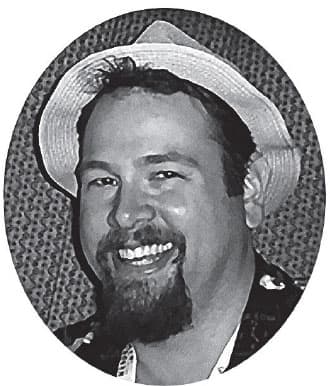
“I have an affinity for ‘lost arts,’ things that gradually get abandoned or neglected by society until they’re only done by a handful of devoted practitioners. There’s a romance to that, and I really admire people who dedicate themselves to preventing great stuff from sliding into obscurity. As an artist, I view the period from the ’30s through the ’60s as a golden age of American style and design. I love the retro aesthetic, and America’s rich, diverse cocktail culture during that time was part of the landscape. Not only the cocktails themselves, but also the idea of the cocktail was deeply enmeshed in the consciousness of that period.”

Jeff “Beachbum” Berry is the reluctant father of Tiki renaissance. What Sven Kirsten (author of The Book of Tiki) did for the artistry of the genre and Hanford Lemoore did for the community of enthusiasts with Tiki Central, Berry did for the underlying drink craft. Without his meditations on the flavor artistry underlying the glitz and kitsch, the rest of it wouldn’t have gotten too far.
“The realization was that instant communication with like-minded souses is now possible, thanks to technological advances that I only dimly understand but wholeheartedly embrace. Not so very long ago, you either had to get a book or magazine article published in order to write about drinking—and the kind of drinking I write about is of little interest to the ‘old media’ gatekeepers. I’m beginning to see more bloggers copping to the fact that they drink while blogging. I encourage this trend. It makes for great reading. Drinking and blogging is basically what most writers used to do before computers, but since they couldn’t blog, they were forced to write novels, plays, and essays instead. Poor bastards.”

“Once I finally found maraschino liqueur and made an Aviation Cocktail, I realized I’d found something I was passionate about and to which I could apply my desire to write without sounding like a self-absorbed schmoe. The liquor industry, I believe, brand managers and marketing firms are starting to identify cocktail bloggers as ‘influencers’ in the industry. Because our reach isn’t geographically constricted and our audience seeks us out for information and guidance, we can point consumers directly to products particularly suited to a use or, in some cases, point them away from products to avoid. Balancing the relationship between promoting products and maintaining credibility with your readership is a critical consideration.”
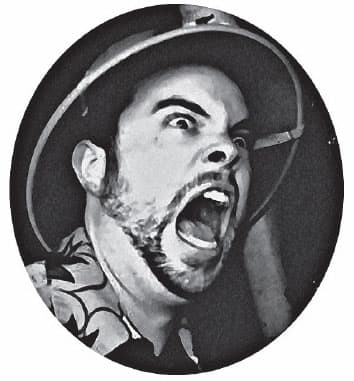
“I’m watching a number of blogs now move towards more research and rediscovery, as we patch missing holes in cocktail history. This is lending a sense of legitimacy to cocktail bloggers, and gives those writers a venue to share their research with others. Because there are so many talented writers and researchers showing their work online, we are seeing a progression in the cocktail world towards a more educated consumer and bartender.
Liquor industry reps appear to be catching on to the influence of the internet, and keying in on top sites to send samples for review, or to get new ideas for how to market their product most effectively. The online exposure of classic liquors even sometimes effects what makes it to the shelf. A write-up like Paul’s article on falernum brought new life to many for what was, for a long time, a missing ingredient, and Haus Alpenz now has Velvet Falernum on store shelves. Paul’s interest, along with a few resurgent classic recipes brought a dead ingredient (well, dead in the U.S.) back to life.”
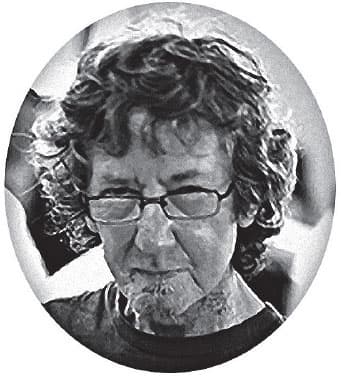
Long ago, Gary Regan founded his cocktail site, Ardentspirits.com, and in 2007 added the immensely successful Worldwide Bartender Database to it.
“The WWBDB is a platform for bartenders that Ardent Spirits intends to use in all sorts of ways, to bring solid information, and fun bar-stuff to members. Phase one has been the birth of the weekly Bartender Bulletin, a missive that keeps members informed about Mixology competitions, various bartender events, and jobs—mainly brand ambassador-type jobs with big liquor companies, and also gigs to create new cocktails for the guys in bar biz and the spirits industry. The first bulletin went out in May 2007. Since then, we’ve found jobs for over 78 billion bartenders.
The bulletin gives me a chance to provide a service for my bartender brothers and sisters without charging them a cent, and, at the same time, it makes it possible to get some cash from the big guys in the liquor industry so I can try to pay this damned mortgage without having to get off my ass.
Since the cocktail world exploded, circa 2004, bartenders have been looking for ways to make a decent living, pay for their health insurance, get a down payment together for a first home, etc. Stuff that people with 9-to-5 jobs and 401K plans sort of take for granted. And they’ve been trying to do this at the same time as they’ve been pushing the envelope in the craft of mixology. By bringing together bartenders and liquor companies—entities who have been looking for ways to connect with the best of the best in the bar business—I hope to help make all these dreams come true.”
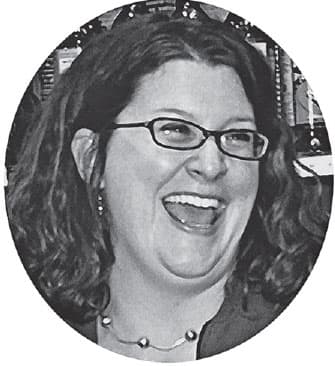
Sonja Kassebaum is the one blogger who is in the liquor-distilling business herself. She and her husband are founders of the North Shore Distillery, near Chicago.
“I have always had a passion for cocktails and spirits, and I like to write. Getting more involved in the industry just enhanced my interest further. More and more people will be investing the time and effort in making great cocktails at home, and it will spread far beyond the cognoscenti in the coming years. Hopefully this will mean that all those terrible premixed cocktails will fade away.”
